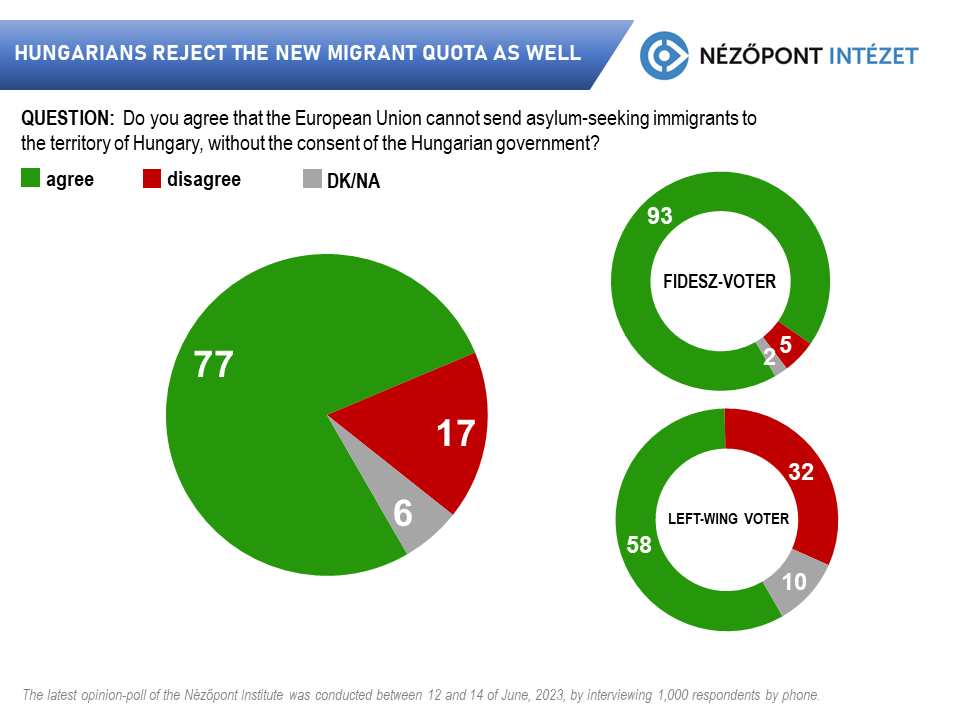77 percent of Hungarians are against the European Union’s plan to send immigrants to Hungary despite the Hungarian government’s objection. There is no social group that supports Brussels’ plan, even 58 percent of left-wing voters reject it.
The plan to introduce a migrant quota has been on the agenda in Brussels since 2015. This was confirmed by the Council’s position, adopted with Hungary voting against, according to which Hungary would have to take in 8,500 illegal immigrants a year. Thus, the migrant quota would correspond to nearly 30 percent of the total number of persons to be transferred.

The revised European plan for a migrant quota is contrary to the principle enshrined in the Hungarian constitution after the 2016 referendum, according to which “foreign population cannot be settled in Hungary”. Therefore, the Nézőpont Institute has investigated whether Hungarians consider it acceptable for a decision on such an important issue to be taken in Brussels without the consent of the Hungarian government.
More than three quarters of Hungarians (77 percent) agree that the European Union should only send “asylum-seeking immigrants” to Hungary with the consent of the Hungarian government.
The rejection of the migrant quota, which seeks to override nation-states’ sovereignty, represents a majority position in all social groups, even exceeding party political preferences.
It’s hardly surprising that nearly the entire pro-government electorate (93 percent) would insist on the protection of nation-state competences and oppose the mandatory quota-based resettlement of immigrants.
The fact that even the majority of left-wing voters (58 percent) are against the principle of a migrant quota, with only a third (32 percent) finding it acceptable, serves as a warning sign for left-wing parties that tacitly support the plan.
Methodology
The latest opinion-poll of the Nézőpont Institute was conducted between 12 and 14 of June, 2023, by interviewing 1,000 respondents by phone. For all surveys, the sample is representative of the adult population (18 years and older) by gender, age, region, type of settlement and education. In case of a sample size of 1000 respondents and a confidence level of 95 percent, the sampling error is ± 3.16 percent. Respondent base = Hungarian voters, respondents who are willing to vote in the elections.
